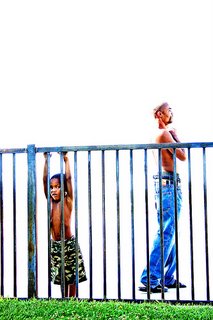poverty, children, stats & Memphis
 My family and I live in the inner-city of Memphis, which among with other less-then-admirable monikers, has won the less than prestigious honor of being the second most segregated city in the US. Living in the inner-city certainly comes with its own difficulties and problems. But what makes it most difficult is the seemingly undending tide of systemic problems that plague, of all groups, the children that grow up in this environment. I recently ran across these statistics from the Urban Child Institute. Please bear with all the numbers, because the result is telling:
My family and I live in the inner-city of Memphis, which among with other less-then-admirable monikers, has won the less than prestigious honor of being the second most segregated city in the US. Living in the inner-city certainly comes with its own difficulties and problems. But what makes it most difficult is the seemingly undending tide of systemic problems that plague, of all groups, the children that grow up in this environment. I recently ran across these statistics from the Urban Child Institute. Please bear with all the numbers, because the result is telling:- 1 in 4 Memphians are under 18. One in 10 are under 5.Fewer words, less praise, stinging poverty, fewer books, less likely to read, single-parent households... What will it take to bring shalom, peace, the universal flourishing of all things, to this environment?
- In 2004, Memphis had a population of 628,000, including 165,000 children under the age of 18. 51,000 children are under age 5.3 in 4 children in Memphis are Black and 1 in 5 are White. 3 percent of children are Hispanic and 1 percent are Asian.
- 1 in 5 families in Memphis live on less than $8,700 a year. 2 in 5 live on less than $19,000 a year. In 2006, the federal poverty line for a family of two was $13,200; for a family of three it was $16,600; for a family of four it was $20,000. The actual amount needed to support a family is closer to twice this income.
- 2 in 5 children in Memphis live in poverty, 3 in 5 are low-income.
- Child poverty in Memphis is twice the national child poverty rate, and substantially higher than the poverty rate for children in Tennessee (19 percent).
- One of every two children in Memphis lives in neighborhoods of concentrated poverty (where 1 in 5 families lives in poverty).
- 2 in 5 (43.6 percent) children in Memphis live with a single parent.
- In 2002, 2 out of 3 (64.4 percent) children in the city were born to single mothers.
- 15.6 percent of children in Memphis live with another relative, most often grandparents.
- In Memphis, married couples earn three times as much as single mothers.
- The median income of married-couples in Memphis is $52,666. The median income for a single mother in Memphis is $18,029.
- In Memphis, children raised by single mothers are five times as likely to live in poverty than children raised by married parents.
- 1 in 5 single mothers in Memphis have less than a high school diploma, and the majority of single mothers (58 percent) have a high school degree or less.
- More than half of all children in Memphis start life in families made vulnerable by poverty. These children will hear fewer words - and will receive less praise - than their middle income peers. They are 3 times more likely to be uprooted from their homes each year, have fewer books in the home and are less likely to be read to. It is no wonder that they are much less likely to reach school ready to learn.
- Children in Memphis score in the 20th percentile on national tests of kindergarten readiness, and achievement gaps between students from low and middle-income families grow wider through the school years.
Can we stop talking now about how "they" need to just go out and get a job? How if "they" will just pull themselves up by their bootstraps "they" can live out the American dream? Can we look more at what it will take to bring about the spiritual, physical, emotional and psychological flourshing that comes as a fruit of the Gospel of Jesus Christ?
What I'm talking about is more than just social justice. And its more than having a "Gospel paratrooper" mentality where you just drop in, share the gospel, and leave. It's something altogether different. It's humbling ourselves, like Jesus did, and entering into broken systems, broken environments and broken people for the redemption of the whole thing. Not just the redemption of a spiritual part. Not just the redemption of a physical part. And not just the redemption of an emotional part. It means not being satisfied until we are involved with Jesus in redeeming every part... yes, the whole thing.
Image: Hope for the Sun originally uploaded by Shavar
technorati tags: missional, poverty, inner-city, Memphis, children, shalom, missional church
